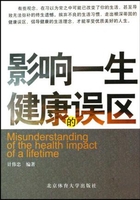Either from indolence, or insouciance, or because people think it fine to pay and ask no questions, three-fourths of thosewho can afford it, give much higher prices than necessary for the things they consume; while the poor often do the samefrom ignorance and defect of judgment, want of time for searching and making enquiry, and not unfrequently from coercion,open or disguised.For these reasons, retail prices do not follow with all the regularity which might be expected, the actionof the causes which determine wholesale l)rices.The influence of those causes is ultimately felt in the retail markets, and isthe real source of such variations in retail prices as are of a general and permanent character.But there is no regular or exactcorrespondence.Shoes of equally good quality are sold in different shops at prices which differ considerably; and the priceof leather may fall without causing the richer class of buyers to pay less for shoes.Nevertheless, shoes do sometimes fall inprice; and when they do, the cause is always some such general circumstance as the cheapening of leather; arid when leatheris cheapened, even if no difference shows itself in shops frequented by rich people, the artisan and the labourer generally gettheir shoes cheaper, and there is a visible diminution in the contract prices at which shoes are delivered for the supply of aworkhouse or of a regiment.In all reasoning about prices the proviso must be understood, `supposing all parties to take careof their own interest.' Inattention to these distinctions has led to improper applications of the abstract principles of politicaleconomy, and still oftener to an undue discrediting of those principles through their being compared with a different sort offacts from those which they contemplate, or which can fairly be expected to accord with them."Natural Price and Market Price.
But even the prices determined by competition do not agree steadily with the results of such calculations as we have made.
Such calculations give the natural price of commodities and to this natural price the actual price constantly tends, and nevercan be far above or far below it.But for a time the market price may be above or below the natural price.
So Smith (B.i.c.vii.):
"The market-price of every particular commodity is regulated by the proportion between the quantity which is actuallybrought to market, and the demand of those who are willing to pay the natural price of the commodity, or the whole valueof the rent, labour, and profit, which must be paid in order to bring it thither.Such people may be called the effectualdemanders, and their demand the effectual demand; since it may be sufficient to effectuate the bringing of the commodity tomarket.It is different from the absolute demand.A very poor man may be said in some sense to have a demand for a coachand six; he might like to have it; but his demand is not an effectual demand, as the commodity can never be brought tomarket in order to satisfy it.
"When the quantity of any commodity which is brought to market falls short of the effectual demand, all those who arewilling to pay the whole value of the rent, wages, and profit, which must be paid in order to bring it thither, cannot besupplied with the quantity which they want.Rather than want it altogether, some of them will be willing to give more.Acompetition will immediately begin among them, and the market-price will rise more or less above the natural price,according as either the greatness of the deficiency, or the wealth and wanton luxury of the competitors, happen to animatemore or less the eagerness of the competition.Among competitors of equal wealth and luxury, the same deficiency willgenerally occasion a more or less eager competition, according as the acquisition of the commodity happens to be of moreor less importance to them.Hence the exorbitant price of the necessaries of life during the blockade of a town or in afamine."On the other hand, "When the quantity brought to market exceeds the effectual demand, it cannot be all sold to those whoare willing to pay the whole value of the rent, wages, and profit, which must be paid in order to bring it thither.Some partmust be sold to those who are willing to pay less, and the low price which they give for it must reduce the price of thewhole.The market-price will sink more or less below the natural price, according as the greatness of the excess increasesmore or less the competition of the seller, or according as it happens to be more or less important to them to getimmediately rid of the commodity.The same excess in the importation of perishable will occasion a much greatercompetition than in that of durable commodities; in the importation of oranges, for example, than in that of old iron."Value in Use and Value in Exchange.
In connection with this, we must take another distinction made by Smith.
Dr Adam Smith distinguishes two kinds of value; the one arising from utility, the other from what can be obtained inexchange.He says, "The word value, it is to be observed, has two different meanings; it sometimes expresses time utility ofsome particular object, and sometimes the power of purchasing other goods which the possession of that object conveys.
The one may be called value in use, the other value in exchange.The things which have the greatest value in use, havefrequently little or no value in exchange; and, on the contrary, those that have the greatest value in exchange, havefrequently little or no value in use.Nothing is more useful than water, but it will purchase scarce anything; scarce anythingcan be had in exchange for it.A diamond, on the contrary, has scarce any value in use, but a very great quantity of othergoods may frequently be had in exchange for it.















